PrestaShop Feed del centro commerciale Google
Con questo modulo è possibile creare feed XML / CSV con prodotti Google Merchant Center. Con questo addon è possibile personalizzare i contenuti del feed grazie alle opzioni disponibili durante il processo di esportazione. L'addon crea due tipi di feed: file scaricabile o feed disponibile online per il recupero programmato. Esporta sia prodotti che combinazioni (tutte le varianti di prodotto).
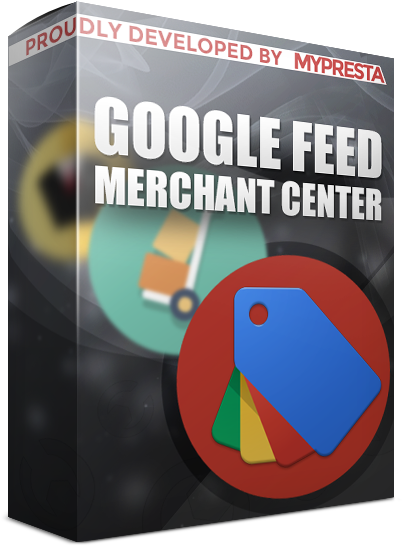
Galeria

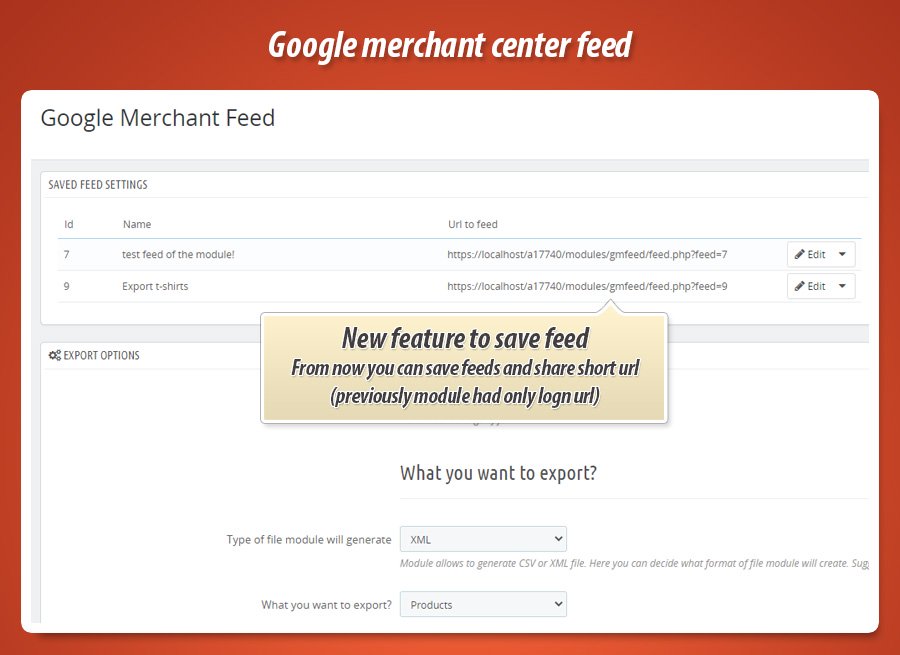
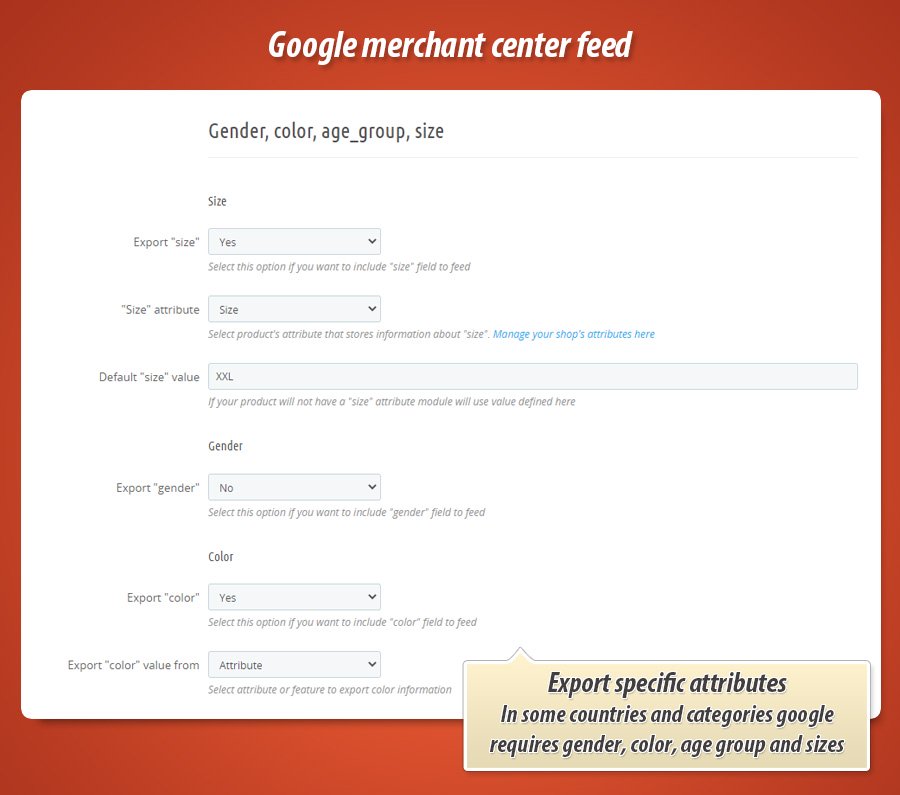
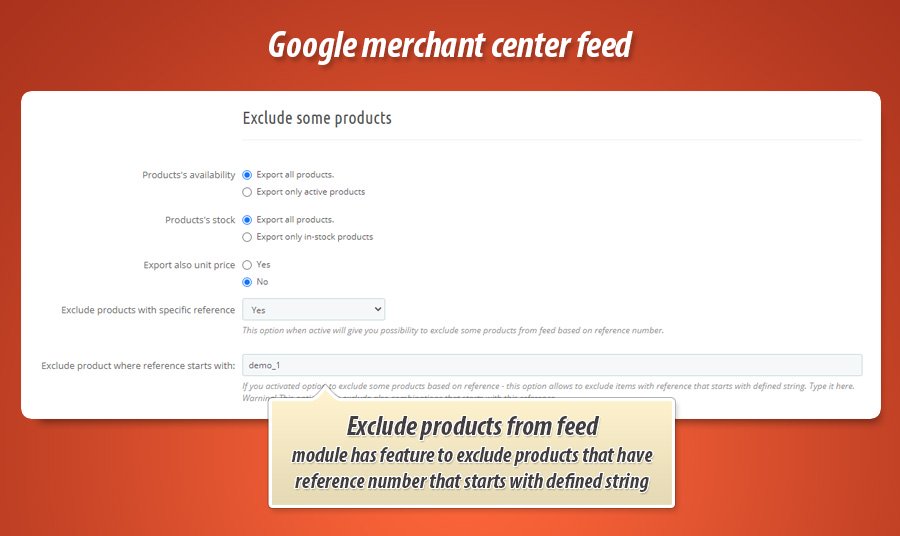
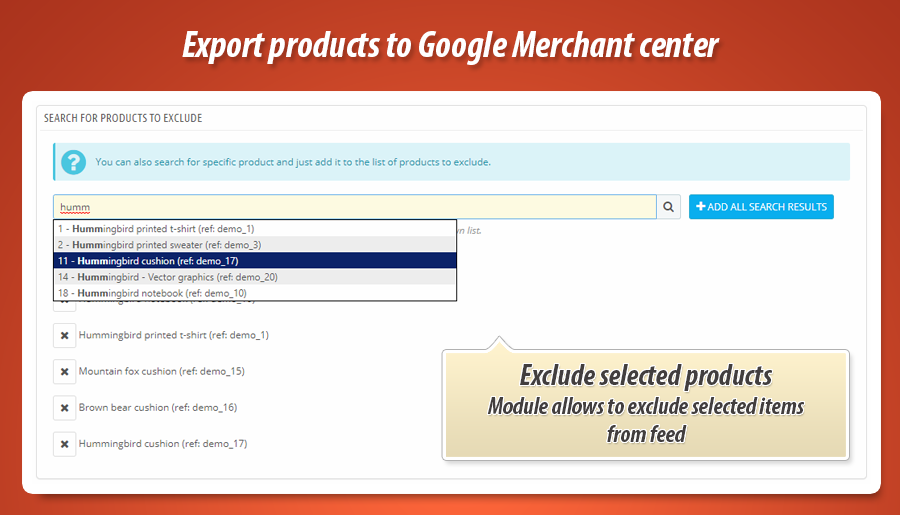
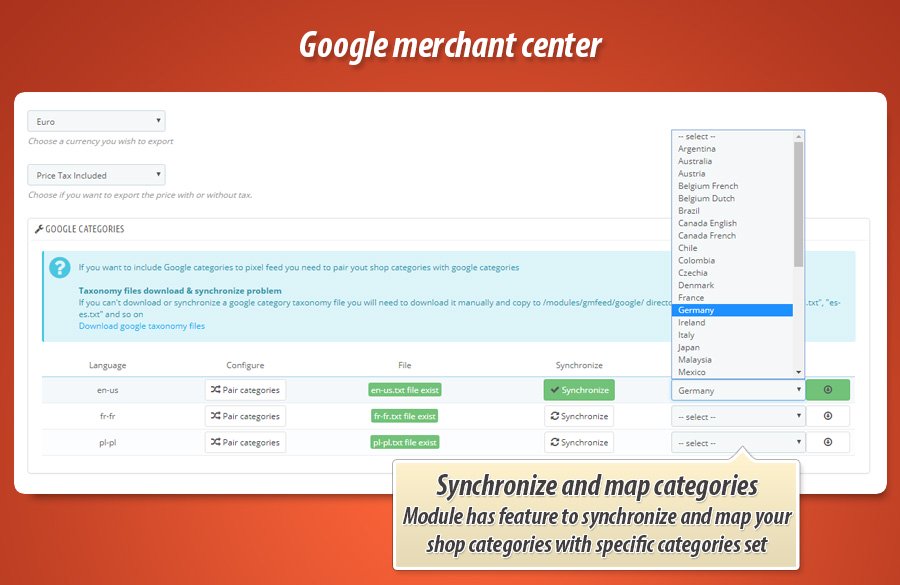
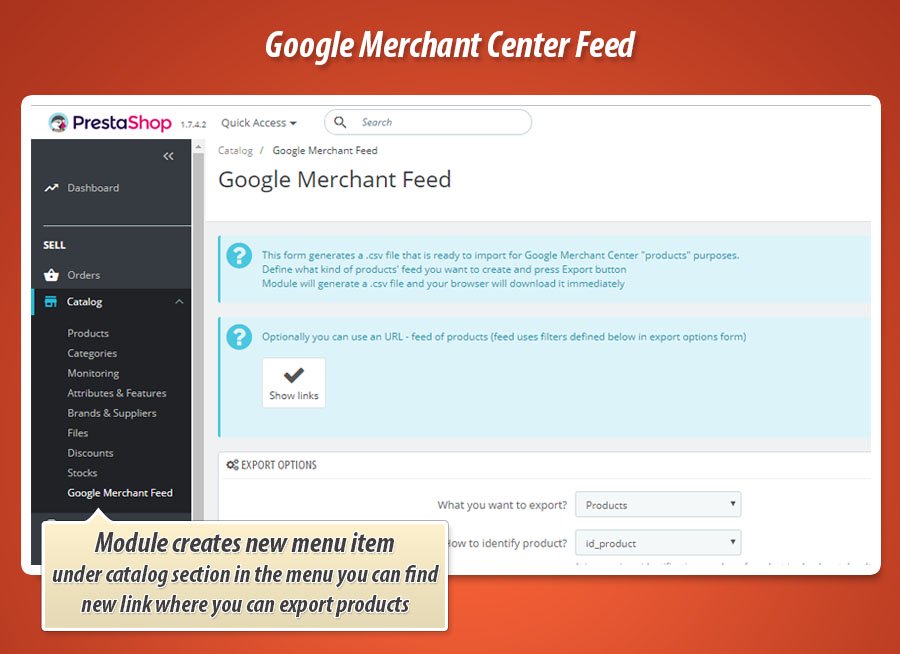
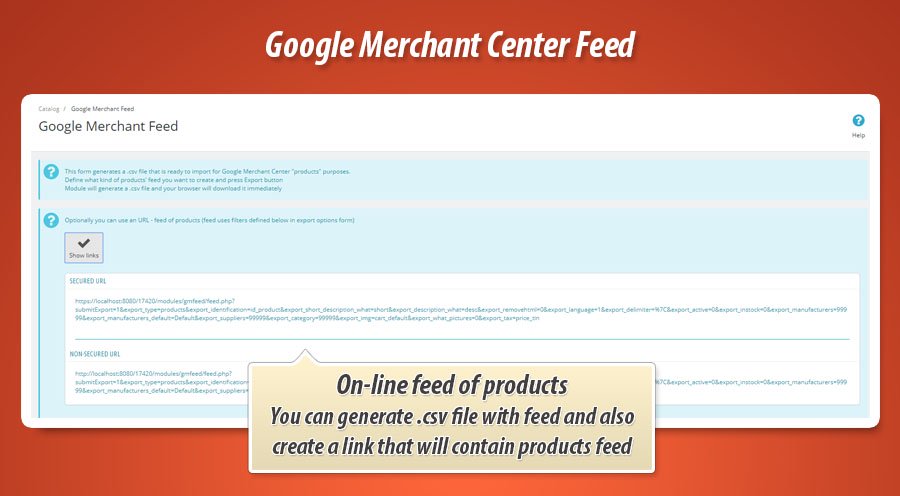
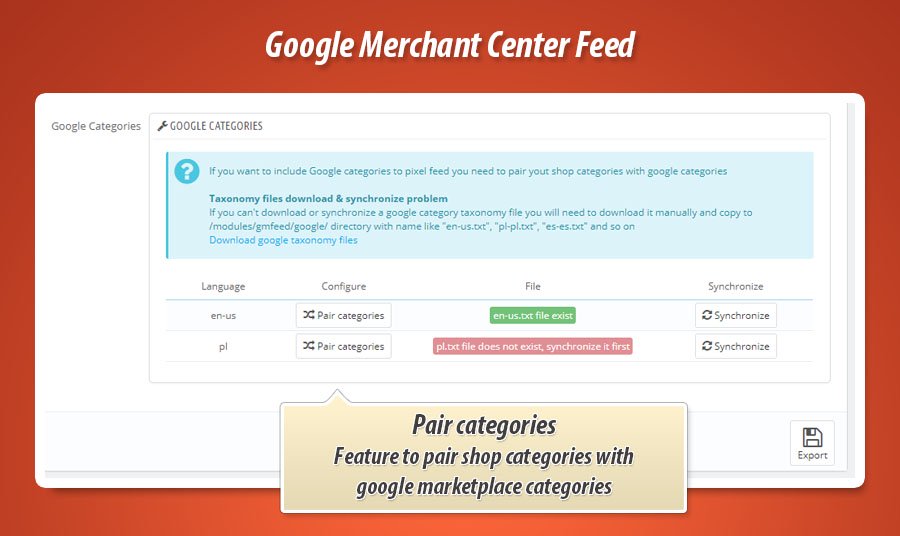
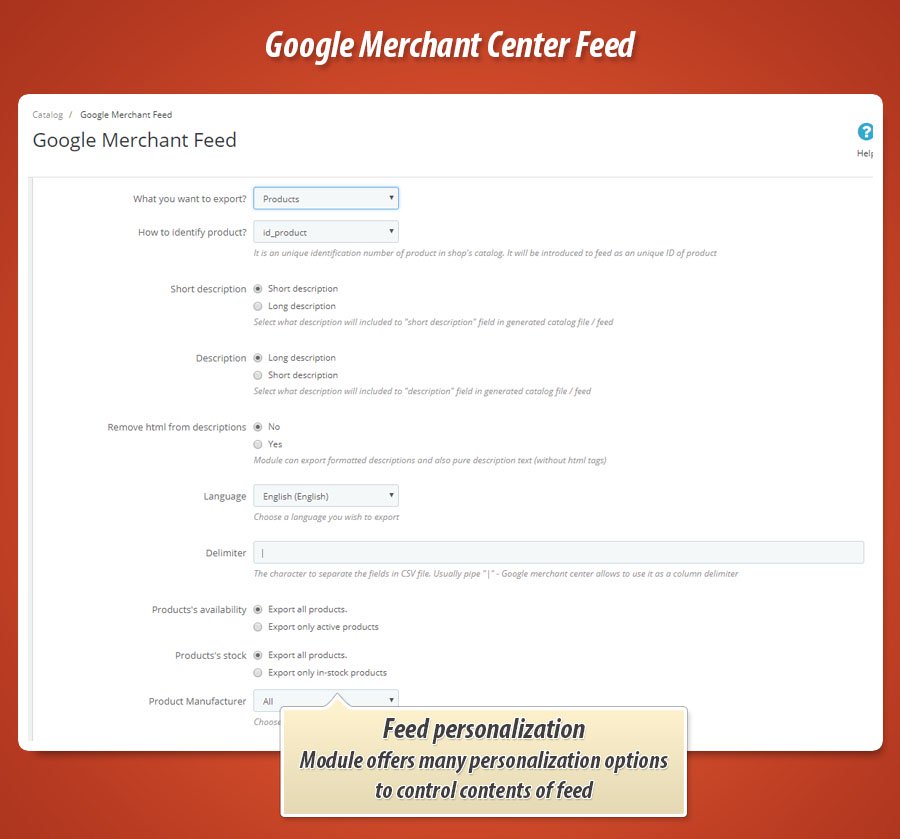
PrestaShop Feed Prodotti Google Merchant Center
Questo modulo PrestaShop è una soluzione professionale per integrare i tuoi prodotti con Google Merchant Center. Permette di esportare facilmente i prodotti, comprese le varianti, in feed XML o CSV. Puoi generare il feed manualmente o utilizzare un URL online per aggiornamenti automatici tramite Scheduled fetch di Google. Il modulo offre un'ampia personalizzazione, consentendo di definire identificatori, attributi, descrizioni, lingue, disponibilità e filtri. Inoltre, puoi mappare le categorie del negozio con quelle di Google e ottimizzare i prezzi e le immagini. Semplifica la gestione del tuo catalogo su Google, garantendo visibilità e aggiornamenti efficienti.
Questo modulo per PrestaShop offre uno strumento di esportazione che crea un feed in formato XML o CSV con i tuoi prodotti, pensato per l'integrazione con Google Merchant Center. In parole semplici, puoi facilmente esportare i tuoi prodotti (anche con varianti/combinazioni) per il marketplace di Google.
| Due tipi di esportazione | |||
| Esportazione su file | Feed disponibile online | ||
|
Metodo manuale di generazione del feed. Disponibile nella pagina di gestione del feed nel back office. Configuri le impostazioni e il modulo genera e scarica il file sul tuo computer. |
Metodo che crea un URL con parametri di esportazione. Aprendo questo link nel browser, il sistema genera il feed con le impostazioni definite. Ideale per aggiornamenti automatici tramite Scheduled fetch di Google Merchant Center. |
||
| Due formati di file | |||
| XML | CSV | XML | CSV |

Grazie alla funzione di salvataggio delle impostazioni di feed, il feed può essere generato e scaricato automaticamente tramite Scheduled fetch di Google. È possibile anche configurare il modulo per salvare il feed in una directory del modulo stesso, ad esempio per eseguire un cron job.

Configurazione del feed
Il modulo permette di personalizzare facilmente il feed durante la configurazione nel back office. Di seguito le principali opzioni disponibili:
- Tipo di file: CSV o XML. Consigliato: CSV leggero.
- Cosa esportare: Prodotti singoli o tutte le varianti/combinazioni.
- Product Type: Opzione per includere un attributo personalizzato "product_type" nel feed per categorizzazioni personalizzate.
- Identificazione prodotto: Puoi decidere se usare l'ID del prodotto, l'ID della combinazione o entrambi (id_product-id_combination) per distinguere facilmente i prodotti nel feed.
- Attributi specifici: Puoi includere campi come sesso, età, colore, taglia, necessari in alcuni paesi o categorie (ad esempio abbigliamento).
- Identificatori unici per Google: Puoi selezionare UPC, EAN13 o riferimento come identificatore unico (GTIN).
- Descrizioni: Opzioni per includere descrizione breve o standard, con possibilità di rimuovere HTML.
- Lingua del feed: Seleziona la lingua in cui verranno generati i dati del prodotto.
- Disponibilità: Esporta solo prodotti in stock o tutti, anche non attivi, e inserisci informazioni di stock reale o generica.
- Filtro per attributi: Esporta prodotti di determinati produttori, fornitori o categorie.
- Immagini: Decidi dimensione e formato delle immagini nel feed per evitare errori di validazione.
- Valuta: Scegli la valuta da includere nel feed.
- Prezzo: Decidi quale prezzo esportare, considerando variabili come valuta, gruppo clienti, paese, prezzi specifici.
- Categorie di Google: Mappa le categorie del tuo negozio con quelle di Google Merchant Center.
- Visualizzazione sui surface di Google: Opzione per includere il codice negozio, rendendo il prodotto visibile anche su Google Search, Images, Shopping, Maps e Lens.
Questo modulo ti permette di creare feed altamente personalizzabili e ottimizzati per Google Merchant Center, facilitando la pubblicazione e l'aggiornamento dei tuoi prodotti nel marketplace di Google.
Galleria Modulo










Perché scegliere il nostro modulo
Feed del centro commerciale Google?
Ottimizzazione e Automazione
Questo modulo automatizza l'esportazione dei tuoi prodotti PrestaShop in formati XML/CSV per Google Merchant Center. Ottimizza la visibilità dei prodotti e consente aggiornamenti automatici tramite URL o cron job, snellendo il processo di pubblicazione e gestione su Google.
Vendite Aumentate
Massimizza le vendite integrando i tuoi prodotti direttamente con Google Merchant Center. Questo modulo assicura un'esportazione automatica e altamente personalizzabile, migliorando drasticamente la visibilità sui canali Google e convertendo più visitatori in clienti.
15 anni di esperienza
L'esperienza maturata in 15 anni su PrestaShop si traduce in un modulo feed potente, capace di gestire con perizia varianti, attributi e categorie Google, assicurando la massima conformità e visibilità su Merchant Center.
Ampia Personalizzazione
Il modulo offre ampie opzioni di configurazione per il tuo feed Google Merchant Center. Puoi personalizzare formato, prodotti, attributi, descrizioni, lingua, prezzi, immagini e filtri, garantendo un adattamento perfetto alle tue esigenze e ai requisiti di Google per una visibilità ottimale.
Codice Open Source
Il modulo non specifica l'accessibilità o la modificabilità del codice sorgente. Non sono fornite informazioni sulla libertà di personalizzazione del codice o integrazione avanzata a livello di sviluppo, concentrandosi sulle configurazioni tramite back office.
Licenza e Aggiornamenti
Gli aggiornamenti assicurano che le funzionalità di esportazione del feed per Google Merchant Center rimangano conformi ai requisiti attuali. La licenza del modulo consente un uso illimitato nel tempo, con un anno di aggiornamenti gratuiti e sconti vantaggiosi per i rinnovi.



























